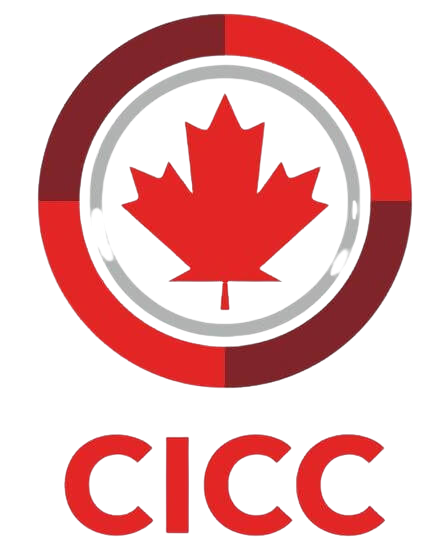Canada is among the most preferred study-abroad destinations as it delivers quality education, a multicultural environment, and abundant job prospects. Studying in Canada improves your educational profile and also helps you get work permits and Permanent Residency (PR). If you are interested in this great opportunity, the best Canada study visa consultants can guide you on how to get a Canadian student visa, post-study work permits, and finally, PR.
1. Research and Select the Right Program and Institution

The first of our tips, when you study in Canada, is to take time and research the Canadian academic programs that will help you achieve your career dreams. There are a great number of programs for students in Canada depending on the level of education, including those programs for students who arrived in Canada after their 12th grade. While selecting your institution, make sure that it is recognized as a Designated Learning Institution (DLI). For a study permit, one must be attending a DLI Only Students attending Designated Learning Institutions, Only Students in Designated Learning Institutions.
Currently, Canada boasts of having some of the best universities and colleges in the world. Some of the well-recognized institutions include the University of Toronto, McGill University, and the University of British Columbia, which provide academically competitive programs. The location of your chosen institution is also important. It is recommended to consider provinces including Ontario, British Columbia, or Alberta since they provide more job vacancies and provincial programs that will allow one to get PR after graduation.
2. Secure an Acceptance Letter
After deciding on the program and the institution, the next thing that should be done is to be offered an acceptance letter. This letter is your official acceptance and necessary document for issuing your study permit at a DLI. Every university and college has specific admission procedure standards, such as transcripts, letters of recommendation, and language proficiency tests. Tests such as IELTS prove the ability to use the English language.
3. Gather the Required Documents for Your Study Permit
With an acceptance letter in your hand, you can now proceed to assemble the documents required for the study permit application. This permit enables one to reside and learn in Canada throughout the program. The documents are proof of acceptance, proof of financial support, and proof of identity.
Evidence of financial means is required to show that you will be able to meet your tuition fees, living expenses, and transportation back home. Furthermore, some candidates are required to take a medical examination based on the country they are from. For students interested in studying in Canada after the 12th, it’s crucial to meet all document requirements early to ensure a smooth process. Canada offers a wide range of programs for those pursuing higher education right after high school.
4. Submit Your Study Permit Application
When you have gathered all the necessary documents, it is time to submit your study permit application. You can use an online application or a paper application based on your geographical location. Online submission of your application is usually quicker, but the time taken to process your application depends on the country you are from. Consulting with the best Canada study visa consultants can help streamline this process and ensure that you meet all requirements.
Also, depending on the country of destination, fingerprints and photographs may be required as part of the application process. It is important to apply as early as possible because the issuance of Canadian study permits normally takes several weeks.
5. Work While Studying in Canada

Flexible work while studying is one of the greatest advantages of studying in Canada. Students on a valid study visa can work up to 20 hours a week during term time and full-time during vacations. This is a good opportunity to get Canadian work experience while being paid to cater to your needs.
6. Apply for a Post-Study Work Permit
After finishing your learning process, you may apply for a post-graduate work visa (PGWP). This permit entitles you to stay and work full-time in Canada for any employer of your choice. The period of the PGWP depends on the duration of the study program that the foreign student was undertaking, with a maximum of up to three years. Obtaining a post-study work permit in Canada allows international graduates to gain valuable work experience. This can also enhance your chances of securing permanent residency in the future.
7. Transition from Student Visa to Permanent Residency
The process of changing a student visa to a Canadian Permanent Residency (PR) is also typical. When you get a PGWP, you are eligible to work in Canada, which makes you qualify for several immigration programs for PR. The most used route is the express entry system, especially the Canadian experience class (CEC). The CEC is immigration for persons with Canadian work experience, and it is one of the most popular programs for immigration.
8. Explore Alternative PR Programs
There are other immigration options for international students apart from Express Entry and the Provincial Nominee Program. The Atlantic Immigration Pilot Program (AIPP) is open to graduates who have attended an institution in any of the Atlantic provinces, including New Brunswick, Newfoundland and Labrador, Nova Scotia, or Prince Edward Island. Consequently, Quebec also provides the Quebec Experience Program (PEQ) for graduates with international education in Quebec.
9. Study in Canada Without IELTS

Most overseas students are anxious about the language proficiency standards of institutions in Canada, and IELTS in particular. Nonetheless, it is possible to study in Canada without having IELTS, as certain universities and colleges accept other forms of language proficiency, like TOEFL or Cambridge English. Some institutions also have exemptions for the IELTS for those who have been learning in English-speaking countries. Studying in Canada without IELTS has become more accessible as universities increasingly offer flexible language proficiency options. This makes Canada a popular choice for students seeking to pursue higher education without the need for an IELTS score.
Conclusion
Education in Canada allows learners to advance academically and gain work experience while also having a chance at getting a permanent residence. It may look like a process filled with many steps, but with the help of this guide and advice from Canada student visa consultants in Hyderabad, you will be able to make your dream of studying in Canada come true. Whether you plan to get a post-study work permit in Canada or looking forward to studying in Canada without IELTS, then the process has a lot of interesting prospects that could help you build your future.
If you have any questions about studying in Canada or need assistance with your student visa application, reach out to Croyez Immigration today! Our expert consultants are here to guide you every step of the way.
FAQ
Q1: How do I select the right program and institution for studying in Canada?
Ans: Research Canadian programs that align with your career goals. Choose a Designated Learning Institution (DLI), as you must attend a DLI for a study permit. Consider top institutions like the University of Toronto or McGill University and provinces like Ontario or British Columbia, which offer more job and PR opportunities.
Q2: What documents do I need to apply for a Canadian study permit?
Ans: You need an acceptance letter from a DLI, proof of financial support, and proof of identity. Some students may also need to provide medical exam results based on their country of origin.
Q3: Can I work while studying in Canada?
Ans: Yes, students with a valid study permit can work up to 20 hours per week during term time and full-time during vacations. This allows you to gain Canadian work experience and help cover your living expenses.
Q4: How do I apply for a post-graduate work permit (PGWP)?
Ans: After completing your studies, you can apply for a PGWP, which allows you to work full-time in Canada for any employer. The permit is valid for up to three years, depending on the length of your study program.
Q5: Is it possible to study in Canada without IELTS?
Ans: Yes, some institutions accept alternatives like TOEFL or Cambridge English, and certain universities may waive the IELTS requirement if you have studied in an English-speaking country.










